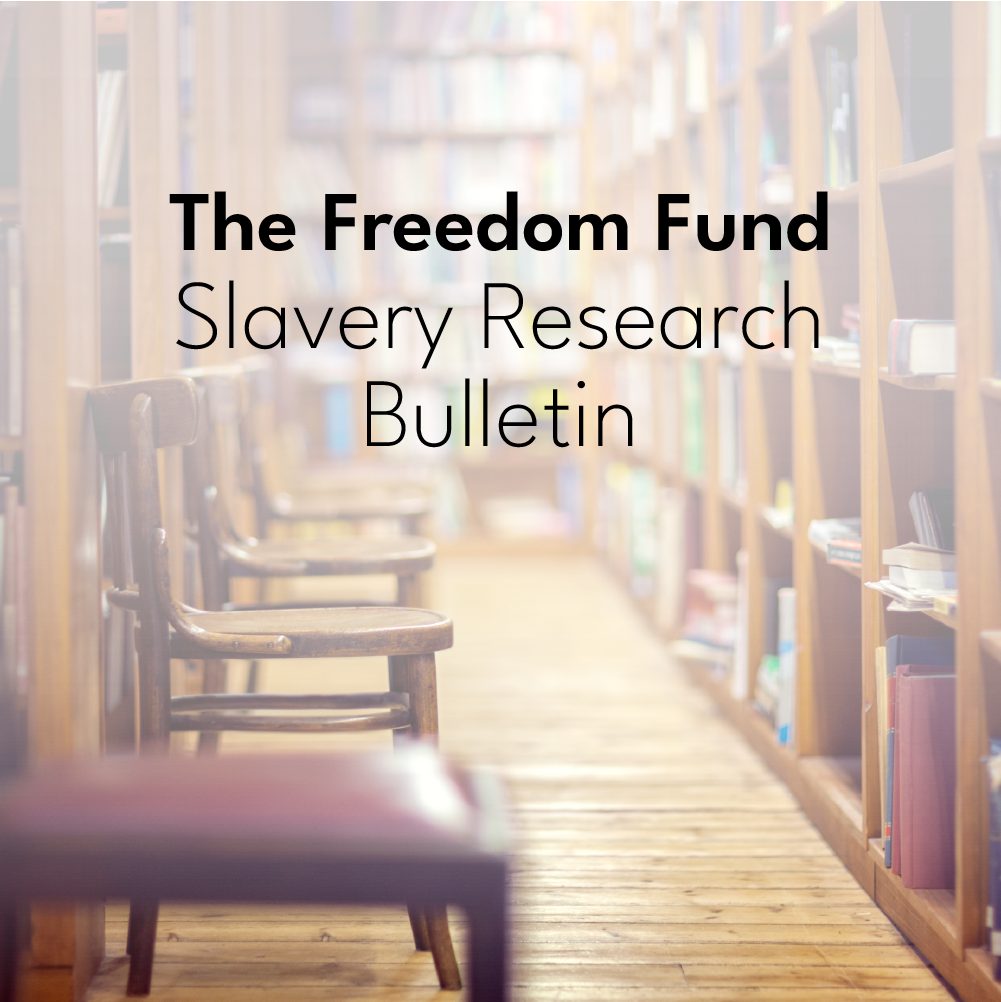| Leveraging modern slavery data to protect human rights Walk Free publishes the 2023 Global Slavery Index, offering a breakdown of the 50 million people in modern slavery across 160 countries. North Korea was named as the country with the highest prevalence, where one in ten people are in modern slavery, primarily due to state-imposed forced labour, torture, and wrongful imprisonment. Shared characteristics were found among many of the countries with the highest prevalence, including limited protections for civil liberties and human rights, as well as involvement in protracted conflicts. |
| Slow progress on ending child marriage UNICEF examines the global practice of child marriage and estimates that 640 million young women have experienced child marriage. The highest prevalence is in South Asia, where more than 288 million women, aged 20 to 24, reportedly married as children. Despite a global decline in child marriage over the last 25 years, the covid-19 pandemic, armed conflicts, and climate change have hindered progress. By 2050, sub-Saharan Africa is predicted to become the second largest home to child brides where one in three girls marry before 18, coupled with its population predicted to double in size. |
| Ending harm by investing in survivor leaders The Lived and Professional Experience Movement-Building Working Group, based in the US and led by the National Survivor Network, reports on harms caused by anti-trafficking efforts shaped by people without lived experience. Behaviours such as assuming survivors’ needs and failing to provide constructive feedback to survivor leaders were highlighted as examples of how well-intended actions can, in fact, perpetuate harm and undermine leadership skills. The Working Group recommends that addressing harm necessitates behaviour change and survivors having a greater role in funding decisions within the anti-trafficking movement. |
| Global evidence on the sexual exploitation of boys Researchers at McMaster University in Canada present findings from a systematic literature review on the sexual exploitation of boys. The review covered 81 peer-reviewed studies from 38 countries, involving a total of 254,744 boys. Overall, up to five percent of boys reported experiencing sexual exploitation, but certain subgroups faced significantly higher risks. For example, boys with severe physical disabilities were four times more likely to experience sexual exploitation compared to children with no physical disability. |
| The intersection of healthcare and human trafficking The World Health Organization (WHO) summarises evidence on health system responses for trafficking survivors. Based on a review of 237 studies, primarily from North America and Europe, the findings show that up to 90 percent of survivors seek healthcare while being trafficked, but 56 percent of them were not identified by frontline healthcare providers due to the lack of specific protocols for treating trafficked persons. The WHO emphasises the importance of trauma-informed care and placing the autonomy of survivors at the centre of care as much as possible. |
| Read on Humanity Research Consultancy shares its latest analysis on the emerging trend of cyber slavery and trafficking into scam compounds in South-East Asia. Sheffield Hallam University’s Helena Kennedy Centre for International Justice releases a review of goods produced using forced labour of Uyghurs and other minority groups in China. UCL’s Institute for Global Health highlights the significance of local meaning-making and community ownership in a participatory research to prevent violence against women in Samoa. |
| Freedom Fund news The Freedom Fund co-hosted a panel at the 2023 Asia-Pacific UN Business and Human Rights Forum to discuss significant developments in transnational litigation against multinational companies. Watch the recording here. For more news and updates about the Freedom Fund, visit our Newsroom. You can also view archived issues of our bulletin here. |

.png)







